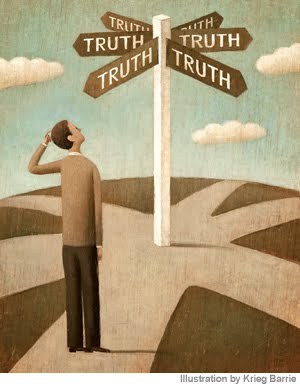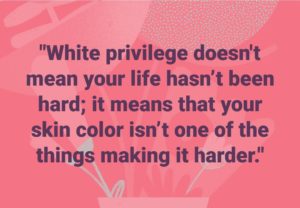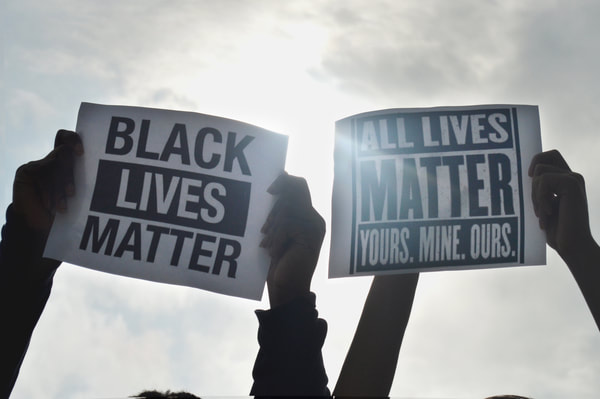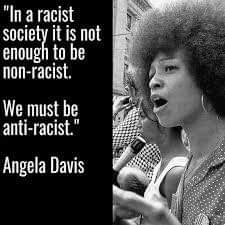|
The articles you’ve previously read here have ranged from what it’s like to be a working mom to how to become a digital activist to living life as a short-term dreamer. These topics may seem random and that’s because they are— I only post when I have an idea or thoughts that I can’t get out of my head. It’s like the only way I can make them stop nagging me is by throwing them out of my brain and letting them land softly on a page. This past week has brought on some of the most intense emotions in existence for our country and the world— this piled onto a global pandemic almost makes life feel a little too overwhelming for even the most peaceful and positive soul. Also this past week, I hopped on a plane for the first time since February so that my husband and I could find a place to live as we are relocating to Raleigh for my job at IBM. During our travels, I have had several uninterrupted hours to think… about my own life choices, about how people are raised and what shapes their beliefs, and also about some conversations I witnessed and participated in recently that have really opened my eyes and mind. (An evolution of the mind that I hope will continue for the rest of my life.) While my original plan this week was to share some tips on business email etiquette or the best tools to lead productive meetings, that just doesn’t seem important or appropriate right now. Instead, I feel compelled to share something a little more personal and a lot more vulnerable. Because I know that nagging feeling on my heart and in my mind won’t go away until I’ve let it out. Living with multiple truthsTarana Burke is the founder of the #MeToo Movement and was recently a guest on Brene Brown’s “Unlocking Us” podcast, where they covered topics like sexual assault and also violence against the black community, especially black women. One of the most memorable comments made during this interview was the fact that we can be living with multiple truths. We see it so much now with social media and really all media being led by those in power and with money— all forcing us to pick a side. Right or left. Wrong or Right. Black or White. But life is not that cut and dry and sometimes, we have to accept that there are multiple truths. If you don’t quite understand, I’ll give some examples below. EXAMPLE ONE: TWO TRUTHS: You can live through adversity and still be privileged. I recently had a white relative, who did not have the best upbringing, tell me that they didn’t understand the saying “white privilege.” This family member was very sincere in sharing their hardships of growing up poor and having multiple jobs in order to pay for their schooling and groceries. Because of this, they assumed they, too, had the same hardships as people who accuse them of having privilege. But the truth is, a white person who has seen great hardship in life also still has white privilege. This means that while they may have had to live through adversity, they did not experience any of this adversity simply due to the color of their skin. They did not have to deal with conscious and unconscious bias that so many people of color do. They could go to the grocery store without being followed around, go for a jog in their neighborhood without being gunned down, and be in their own residence without being shot by a cop in the wrong apartment. They also were most likely able to overcome adversity more easily than a person of color would in their exact situation simply because of the color of their skin. They could get a job interview because their name sounded the “right kind of white,” they could be approved to rent an apartment because of the color of their skin, and they could get paid more than their colleagues of color. (Reminder: women of color STILL only make 52 cents to the dollar fo their white male counterparts, who have the exact same education, role and experience.) EXAMPLE TWO: MULTIPLE TRUTHS: Black on Black crime is a problem AND so is Police Brutality of the black community. So many times, people will use the argument that blacks are killing more blacks than cops or white people do. They wouldn’t be wrong, but this does not mean that police brutality isn’t a problem against the black community. Yes, more black people are killed by other black people, but the same is also true that more white people are killed by white people. It’s because crimes are more likely to happen between people in the same communities. But another truth is that police brutality is high against blacks and there is systemic racism running rampant in our country. This is not an opinion, there is data that backs this up. You can read about it in studies and books like "Race and Police Brutality: Roots of an Urban Delimma" at this link. So while all of these points are true, none of them should take away from change that is needed to address each of them. This change could be more strict gun laws, an overhaul of the justice system, and/or many other solutions focused on each specific problem or truth. ANOTHER TRUTH: Police brutality is high across all races. According to the 2019 US Census, white people make up approx. 60% of the US population with African Americans making up 12-14% depending on what nationalities you include in the figure. When looking at police deaths on statistica.com, black people make up 22.3% of police-caused deaths compared to 41% of white deaths between 2017-2019. The total number of deaths by police in that same time period is 2,987 for all races. No matter how you look at the numbers, that is a high fatality rate from interactions with police for both races, and an overhaul of the current justice system is needed. Some good news out of Minneapolis yesterday is a civil suit was filed against the MPD that will result in an investigation into their practices over the past decade. This could be used as a basis for other states and cities to launch their own investigations on police practices, procedures and protections they receive from being part of a union. Read about the suit here. And yes, another truth is that there are good cops along with racist and unethical ones. But Chris Rock says it best, "Here’s the thing, man. Whenever the cops gun down an innocent black man, they always say the same thing. “Well, it’s not most cops. It’s just a few bad apples. It’s just a few bad apples.” Bad apple? That’s a lovely name for murderer. That almost sounds nice. I’ve had a bad apple. It was tart, but it didn’t choke me out. Here’s the thing. Here’s the thing. I know being a cop is hard. I know that shit’s dangerous. I know it is, okay? But some jobs can’t have bad apples. Some jobs, everybody gotta be good. Like … pilots. Ya know, American Airlines can’t be like, “Most of our pilots like to land. We just got a few bad apples that like to crash into mountains. Please bear with us.” EXAMPLE THREE: TWO TRUTHS: All lives matter AND Black Lives Matter is a critical movement working to eliminate racism. Let’s just get this straight— Black Lives Matter is in no way saying that black lives are more important than any other life. Black Lives Matter is drawing attention to the injustices to the black community and the loss of innocent lives at the hands of police. The “All Lives Matter” response to Black Lives Matter is hurtful and shows that the people saying it either 1) do not understand the point of BLM or 2)are blatantly and ignorantly saying they are racist. Yes, someone can be racist even if they think or say they are not. Here’s an analogy if you’re having a hard time understanding: Let’s say your house is on fire with a family member inside. You would say “My House Matters” and expect the fire department to hurry along to put out the flames and save the life inside. But then along come people who are not willing to understand the experience of the person inside the burning house nor the urgency of addressing the out of control flames, instead they say “All Houses Matter” and demand that the fire department water every house on the block instead of focusing on the one burning to the ground. My advice on this one is that if you feel the need to say All Lives Matter in response to the BLM movement, you need to take a hard look at your motivation along with what you might be missing by not truly listening before you speak. EXAMPLE FOUR: TWO TRUTHS: You can be anti-racism and still have racist prejudice inside of you. This one hurts the most as a thirty-something white woman writing this knowing I am guilty and responsible for my own prejudice against people of color. While I am fully committed to doing my part to end racism and fighting for the equality of minorities everywhere, I must first acknowledge the conscious and unconscious bias that lives inside me from all of the things I’ve learned throughout my life— especially in a predominantly white Southeast Missouri town where I grew up. It’s not enough to seek equality, but we must also acknowledge our biases along with hardship put on minorities in the past and present in order to move to a more just future. In my new favorite book, “Untamed” by Glennon Doyle, she touches on her continued need to learn and unlearn what is the right approach to shine a light on injustices against the African American community. It’s been a learning experience for her as I am convinced it will be for anyone looking to take action after what happened to Ahmaud Arbery, Breonna Taylor, George Floyd and so many others. And you should know that we white people, who are speaking out against racism... we will fail. We will be ridiculed for speaking when we should listen. We will be told we are ignorant and clueless to what it’s like to be African American in this country. We will be laughed at and yelled at and will get it from both sides of the fight. And it will all be true. But we must do it anyway. We must not be silent. We must try and fail and try again. Because it’s up to each of us to continue to learn and unlearn our own bias and prejudice in order to create a world all of our children deserve. And we will do this by working every day to better understand the black experience and what actions we can take to make it right. In Closing...You can see these kind of multiple truths in everyday situations— like with my family, we can be extremely sad to leave our family and friends in Missouri while also exclaiming with glee that we get to start a new adventure in North Carolina next month.
And we especially see these multiple truths in the very real issues our world is facing today… with civil rights and even the pandemic. I hope that you realize you don’t always have to pick one truth over another… that you can fight for equality and want a better world for minorities while also acknowledging the multiple truths of any situation. After all, it’s on each of us to identify actions we must take to right any truths that are unjust in the world. Racism exists and it is on white people to eliminate it. ~~~~~~~~~~~~~~~~~~~~~~~~~ Additional Resources to help you take action today: BlackLivesMatters.com 75 Things White People can do for Social Justice White Fragility: Why it's so hard for white people to talk about racism (Digital Book)
2 Comments
|
AuthorAshley AuBuchon-Arcand is a Strategy, Transformation & Communications Leader at IBM, experienced keynote speaker and coach. Archives
February 2024
Categories |





 RSS Feed
RSS Feed